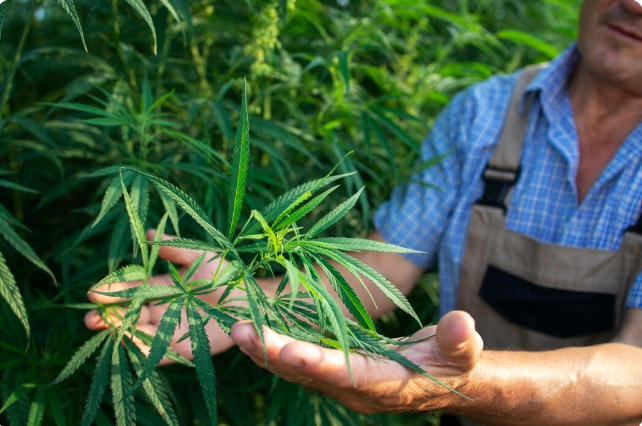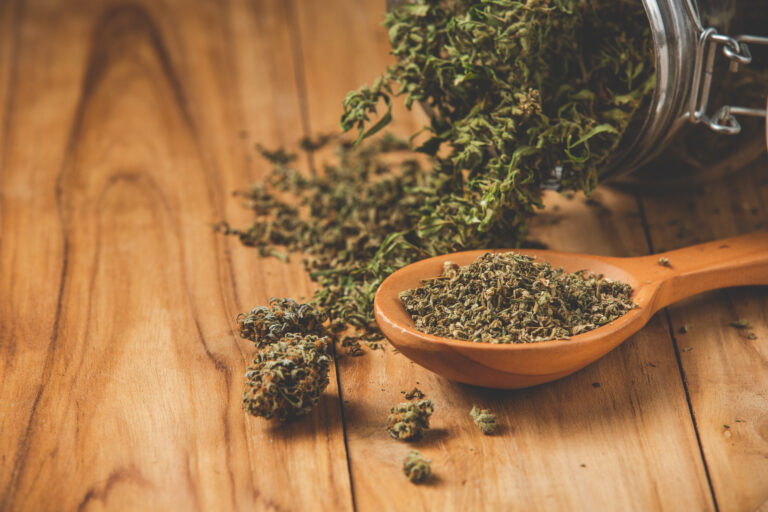In recent years, CBD products have gained increasing popularity both in Lithuania and across the European Union. People appreciate natural CBD oil and other products for their potential benefits in promoting relaxation, reducing stress, and improving overall well-being. However, many still have questions about CBD legality – whether these products are legal, and what rules apply for purchasing and usage. In this article, we will discuss how CBD is currently regulated in Lithuania and the EU, and what to consider when choosing products.
What Is CBD and Which Products Are Most Popular?
CBD, or cannabidiol, is a natural chemical compound found in the cannabis plant that has recently attracted significant attention for its potential health benefits. Unlike THC, CBD is non-psychoactive, meaning it does not produce a “high.” Due to these properties, it has become popular in both wellness and cosmetic markets. In Lithuania and other EU countries, more people are choosing CBD products as a natural way to maintain good health and well-being.
CBD Product Variety
There is a wide range of CBD products available on the market, which consumers choose based on their needs. The most popular include:
- CBD oil – typically used sublingually (under the tongue) for fast effects. It is commonly used for relaxation, stress relief, and improving sleep quality.
- CBD gummies – a convenient way to consume CBD, especially for beginners. They are tasty and easy to dose.
- Capsules – provide a precise amount of CBD and are suitable for those who prefer not to use oils or gummies.
- Creams or topicals – applied locally, often for pain relief or alleviating skin issues.
All these products allow consumers to select the form that best suits their lifestyle and preferences.
CBD Effects on Health
Scientific studies indicate that CBD may help reduce anxiety, stress, and pain, though effects can vary among individuals. It is important to emphasize that CBD is non-psychoactive and does not produce the “high” associated with THC. Most users choose CBD products for relaxation, stress reduction, and general well-being. Research also suggests that CBD can improve sleep quality, but it is crucial to follow proper dosing and select reliable products to ensure safety.
CBD Legality in Lithuania
Current Legal Situation
In Lithuania, CBD products are legal, but their sale and use are strictly regulated. The main requirement is that products must contain minimal THC, usually no more than 0.2%. This ensures that CBD oil and other products do not have psychoactive effects.
Additionally, all CBD products must be properly certified and labeled. Manufacturers must provide laboratory tests confirming THC levels and clearly list product ingredients. These requirements help consumers choose safe and high-quality products while ensuring compliance with legal standards.
Purchasing and Usage
In Lithuania, CBD oil and other products can be purchased in specialized stores and online. Most CBD gummies and capsules are easily available, but it is essential to choose reputable suppliers who provide certification and lab test results.
A prescription is generally not required, as CBD is not classified as a narcotic. However, beginners are advised to consult a doctor, especially if taking other medications or having health issues.
When selecting products, consider the following:
- A reputable manufacturer with laboratory testing.
- Clearly stated THC content and CBD concentration.
- Accurate labeling and expiration date.
Following these guidelines, consumers can safely use CBD products, including CBD oil and CBD gummies, in Lithuania, whether purchased in physical stores or online.
CBD Legality in the European Union
General EU Guidelines
Across the EU, CBD legality is not uniform – each country may have its own rules, but the EU sets general guidelines to ensure safe product use. One main requirement is THC content: in most countries, products must not exceed 0.2–0.3% THC. This ensures that CBD oil and CBD gummies are non-psychoactive.
Additionally, the EU recognizes CBD as a dietary supplement, meaning products intended for daily consumption must be properly labeled and meet hygiene and safety standards. These rules help consumers safely use CBD products throughout the EU.
Country-Specific Examples
The legal situation varies across EU countries:
- Germany: CBD products are legal if THC content does not exceed 0.2%. Both CBD oil and CBD gummies can be legally purchased in specialized stores and online.
- France: CBD may only be sold from hemp seeds and stalks, with minimal THC content. Products are mostly available in specialized stores and online.
- Netherlands: CBD products are widely available. CBD oil and CBD gummies can be purchased in pharmacies and specialized stores. Strict labeling and quality standards apply.
These examples show that while CBD legality varies by country, EU-wide guidelines allow consumers to safely use products. When choosing CBD products, it is important to understand local regulations and buy only from reputable suppliers to ensure quality and safety.
How to Safely Use CBD Products
Dosage and Usage Tips
When starting with CBD products, it is important to begin with a low dose to allow your body to adjust. For example, CBD oil is often taken in a few drops per day while monitoring the body’s response. The dose can be gradually increased if a stronger effect is needed.
Reading labels correctly is essential: check CBD concentration, product type (oil, gummies, capsules), and THC content. This ensures you select the right product for your needs. For CBD gummies, pay attention to the amount of CBD per gummy and recommended intake to avoid exceeding safe limits.
Possible Side Effects
Although CBD products are generally considered safe, some users may experience mild fatigue, digestive issues, or headaches. CBD may also interact with certain medications, so consult a doctor or pharmacist if taking prescription drugs.
For safe use:
- Start with a low dose and monitor your body’s reaction.
- Choose only certified products with laboratory testing.
- Consult a healthcare professional if using other medications or having health conditions.
By following these simple rules, CBD oil, CBD gummies, and other CBD products can be safely used daily to support relaxation, reduce stress, and improve overall well-being.
Conclusion
In summary, CBD products are legal in Lithuania if regulatory requirements are met – products must contain minimal THC, be properly certified, and clearly labeled. This ensures that CBD oil, CBD gummies, and other products are safe to use and comply with the law.
Across the EU, CBD legality varies by country: some have stricter rules on THC levels or sale conditions, while others make CBD products widely available in stores and online. Therefore, it is important to understand local regulations before purchasing to ensure legal and safe use.
For maximum safety and effectiveness, always choose reputable products, read labels carefully, and start with lower doses. Responsible use of CBD oil, CBD gummies, and other CBD products ensures safe consumption and maximizes potential benefits.



